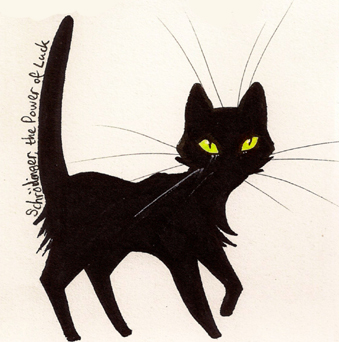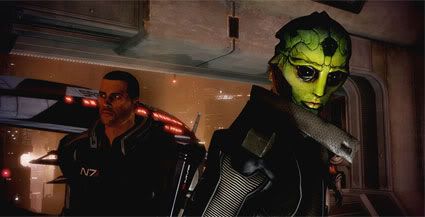
As much as I love BioWare, I can’t shake the notion they’ve gone in the wrong direction.
You see, they’re developing a Star Wars MMO. Granted, it’s set in the wildly popular and surprisingly rich universe of the Old Republic, the same as their previous RPGs and some of the best comics written in that universe (in my opinion). So while I’m cautiously optimistic and might try out the beta if I can, I don’t think I’ll be buying it.
If they had developed a different game, I think they’d be getting a lot more of my cash. And not just mine.
What I’m driving at is, BioWare should needs to develop a Mass Effect MMO.
I know there are arguments why this shouldn’t be done. A lot of people who play single-player games like Mass Effect despise MMOs. And I can understand their sentiment. I agree that I wouldn’t want a game that’s just World of Warcraft in space. I think that as the Mass Effect games continue to evolve, the combat system is becoming more refined, and porting that into an MMO would work as a nice change from the usual MMO method of point-and-clicking something to death.
Other people seem to think that having a massive amount of players in the universe will ruin the universe. Granted, you’ll definitely have people running around trying to be nothing more than Shepard 2.0, the latest and greatest Spectre who doesn’t play by the rules and is out looking for answers and is letting their assault rifle do the talking and their assault rifle speaks very loudly and rapidly. But there’s something out there that both gives me hope that this would be a minor problem and encourages for me the idea of an MMO in this universe working.
The Cerberus Daily News.
Established concurrently with Mass Effect 2, the CDN is an in-universe news bulletin board. They added a commentary box to it for visitors to use. Role-players were drawn to this like moths to a sci-fi lens flare. An official forum has become attached and the sheer amount of storytelling going on, for better or worse, is staggering.
I hope this community continues to thrive. To me, this is evidence that people want to play within the Mass Effect universe as somebody other than Shepard. Now, it may simply continue in this vein if Star Wars: The Old Republic fills the LucasArts/BioWare MMO niche, or they may expand into new territory with a Mass Effect MMO. I’m curious to see what happens.
Then again, maybe this is just my bitterness towards Lucas coloring my opinion. As I said, the Old Republic portion of the Star Wars universe has provided us with some great stories so far. Maybe an MMO set there will satisfy the sci-fi role-players unfulfilled by EVE Online and the lack of role-playing freedom in Mass Effect. It could very well be that, between the CDN and the folks who go into the Old Republic, a Mass Effect MMO would prove to be unnecessary.
I’d still rather play that than another Star Wars game, though. That’s just my opinion.
Until we know more for sure, I’ll continue checking out the CDN. It’s an interesting look at the sort of role-players drawn to the Mass Effect universe, if nothing else.









